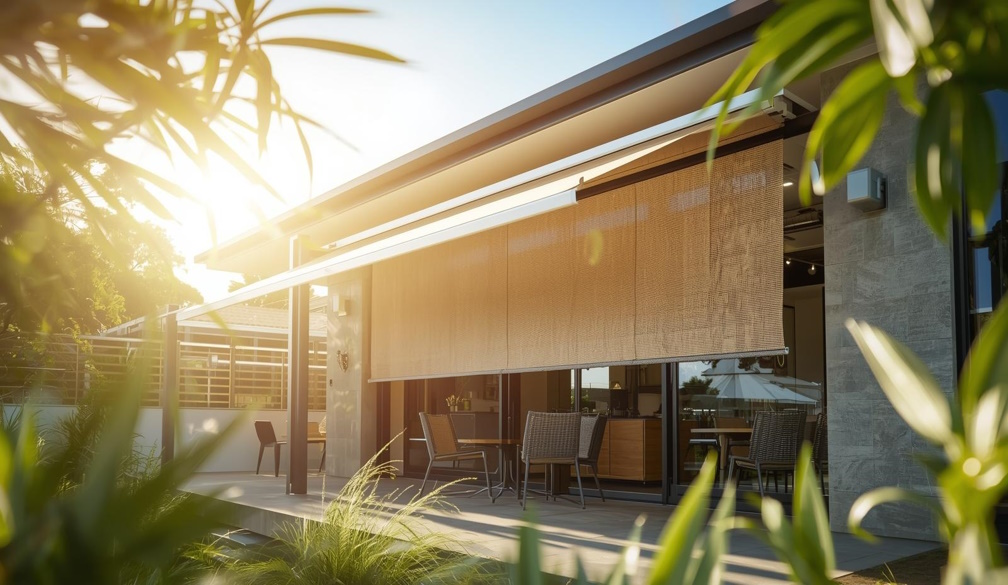Outdoor Awning Blinds: The Perfect Blend of Shade, Comfort, and Style for Modern Living
- Written by Insiders

In Melbourne, where the weather can shift from bright sunshine to cool winds in a matter of hours, creating comfortable and protected outdoor spaces has become essential for both homes and businesses. Outdoor awning blinds provide an ideal solution for this need — offering shade, privacy, and weather protection without compromising on aesthetics. With sleek designs, durable materials, and flexible functionality, these blinds transform patios, verandas, and decks into year-round retreats that combine beauty with practicality.
What Are Outdoor Awning Blinds
Outdoor awning blinds are external shading systems designed to provide protection from the elements while improving comfort and usability in outdoor areas. They are typically mounted on the exterior of buildings, pergolas, or windows to block sunlight, rain, and wind. Available in a wide variety of styles, these blinds are made from weather-resistant materials such as acrylic, PVC, or mesh fabrics that allow for airflow while reducing heat and glare.
Unlike standard indoor blinds, outdoor awning blinds are specifically built to withstand Australia’s demanding weather conditions. Their robust construction ensures longevity and performance even during intense heat or sudden downpours — a common feature of Melbourne’s climate.
Enhancing Outdoor Living in Melbourne
Outdoor spaces are an important part of Australian life, and with the right design, they can be enjoyed year-round. Outdoor awning blinds help extend living areas by creating shaded, weather-protected zones perfect for dining, entertaining, or relaxing.
During summer, these blinds block up to 95% of harmful UV rays, keeping temperatures cooler and protecting furniture and flooring from fading. In winter, they act as windbreaks, trapping warmth and allowing you to use outdoor spaces comfortably even in cooler weather. This versatility makes them an excellent investment for Melbourne homes that value functionality and style.
Design and Functionality
Modern outdoor awning blinds are designed with a focus on both performance and appearance. They come in a range of styles, including straight-drop, pivot-arm, and retractable systems, each suited to different architectural needs.
Straight-drop blinds are perfect for enclosing patios, pergolas, or verandas. They drop vertically to provide full coverage and can be stopped at any height to control airflow and sunlight. Pivot-arm awnings extend outward from the window or wall, offering adjustable shading for windows and balconies. Retractable blinds provide maximum flexibility, allowing you to extend or roll up the blind depending on the weather or your preference.
These systems can be manually operated using a crank handle or automated for easy control with a remote or wall switch. Motorised options are particularly popular for larger installations or commercial use, offering effortless operation at the touch of a button.
Benefits of Outdoor Awning Blinds
One of the biggest advantages of outdoor awning blinds is their ability to create cooler, more comfortable spaces. By blocking direct sunlight before it hits windows or outdoor areas, they significantly reduce heat build-up. This not only enhances comfort but also cuts down on energy usage by reducing reliance on air conditioning.
They also provide valuable protection from glare, allowing you to enjoy outdoor activities, read, or work without discomfort. Their UV-blocking properties make them ideal for protecting both people and property — preventing sun damage to outdoor furniture, floors, and fabrics.
In addition to comfort, outdoor awning blinds improve privacy without restricting airflow or visibility. Mesh and perforated fabric options allow you to enjoy views of the outdoors while maintaining seclusion from neighbours or passersby.
For commercial properties such as cafés or restaurants, these blinds offer practical and aesthetic benefits. They enable outdoor dining spaces to remain usable throughout the year, regardless of weather conditions, and give establishments a professional, stylish appearance that enhances their appeal to customers.
Durability and Material Quality
Outdoor awning blinds are designed to endure the Australian climate. The frames are typically made from powder-coated aluminium or stainless steel for maximum strength and corrosion resistance. These materials are lightweight yet robust, ensuring stability and longevity even in high-wind areas.
The fabrics used are equally important. High-quality materials such as acrylic, PVC-coated polyester, and woven mesh fabrics provide UV protection, water resistance, and colour retention. Many fabrics are also treated for mildew and mould resistance, making maintenance easier.
Because of these durable materials, outdoor awning blinds require minimal upkeep. Regular cleaning with mild soap and water, along with occasional checks on fittings and mechanisms, is usually enough to keep them in excellent condition for many years.
Energy Efficiency and Sustainability
Outdoor awning blinds contribute significantly to energy efficiency. By reducing solar heat gain through windows and outdoor walls, they help maintain cooler indoor temperatures naturally. This means less energy is needed for air conditioning during summer, resulting in lower energy bills and reduced environmental impact.
During winter, retracting or adjusting the blinds allows sunlight to enter, naturally warming interiors and further lowering heating costs. This passive temperature regulation supports sustainable living and makes outdoor awning blinds a smart choice for eco-conscious homeowners.
Customisation and Design Options
Every home or business has its own style, and outdoor awning blinds can be customised to complement any architectural design. Melbourne suppliers offer a wide range of fabric colours, patterns, and textures, as well as different frame finishes to match or contrast with your property’s façade.
Whether you prefer a contemporary minimalist look or a classic design, there are endless combinations to choose from. Motorised options can include smart sensors that automatically respond to sunlight, wind, or rain, ensuring the perfect level of shade and protection at all times.
Some systems can also be integrated with smart home automation, allowing control via smartphone or voice commands for added convenience.
Conclusion
Functional, durable, and visually striking, outdoor awning blinds are the perfect addition to any Melbourne home or business seeking comfort and style. They offer superior protection from the sun, wind, and rain while enhancing outdoor living spaces and reducing energy costs.

